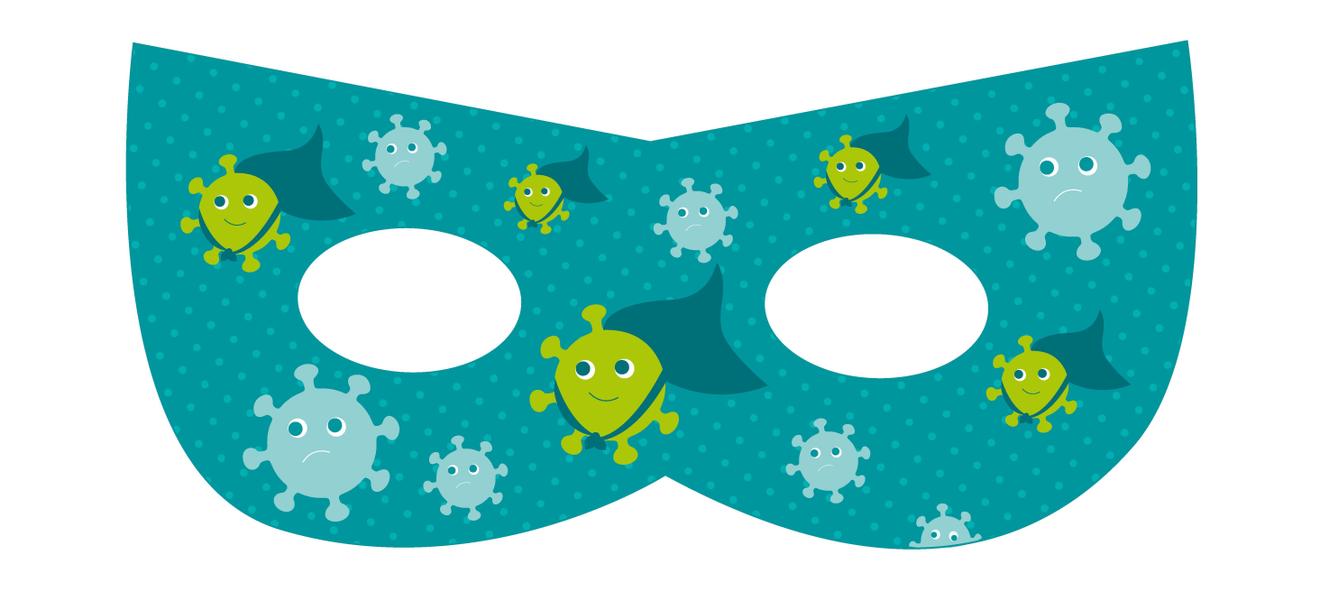Pro-vaccine arguments
- The vaccine is safe and protects against COVID-19 infections.
The modified dosage for children (1/3 of the adult dosage) will give a good immune response and good protection against a symptomatic COVID-19 infection.
In the US, almost 9 million dosages have been administered to primary school children. As is the case in teenagers and adults, any side effects such as muscle pain in the arm are mild and passing. Severe complications are extremely exceptional. More specifically, there have been reports of mild and self-limiting myocarditis in less than 1 in 500,000 dosages. - Any long-term adverse effects of the vaccine are highly unlikely.
The vaccine components disappear from the body after a couple of weeks, only the 'immune memory' remains, as it would after a 'natural' infection.
Adverse effects months or years later have not been seen in any other vaccines, not even decades after vaccinating nearly the entire world population. - In children, an infection with the COVID-19 virus usually passes unnoticed or with mild symptoms. However, a COVID-19 infection in children is not always harmless.
- Since the start of the pandemic, hundreds of children have been admitted to Belgian hospitals, or even to intensive care wards, with severe COVID-19 complications. Five children passed away as a result of COVID-19.
Children that have to be admitted, primarily suffer from the 'multi-system inflammatory syndrome’, also called ‘MIS-C’. An estimated 1 in 5,000 'healthy' children with COVID-19 will develop this complication. The vaccine protects against the COVID-19 infection and therefore also against MIS-C. - Vaccination reduces the risk of infection in family members and peers.
This can reduce the number of quarantines and school closures; extracurricular activities, exams and holiday plans are less likely to be canceled. - The vaccine increases natural immunity in children that have already gone through an infection, without any increase of adverse effects.
There are still questions with an incomplete answer:
- How well and how long the vaccine will protect against a COVID-19 infection in children, and especially against the new omikron variant, is as yet not completely clear. Figures in adults and adolescents show that the basic vaccination of two dosages protects against omikron, although less than against other variants. An additional vaccine dosage (‘booster’) will further increase protection against omikron. It is possible that a booster might also prove useful in children to increase the impact of the vaccine. This is not unusual, for other childhood diseases there is sometimes a basic vaccination of three or four dosages.
- Vaccinating children contributes to ‘group immunity’, but it is difficult to predict how strong that effect is, given the ever-evolving epidemiological situation.
- Uncontrolled circulation of the omikron variant with a ‘natural infection’ of all children is sometimes postulated as an alternative to general vaccination. This type of strategy is clearly risky, i.e. a larger number of children with severe complications such as MIS-C, more infections in vulnerable family members and a disruption in the care for other disease as a result of more pressure on the healthcare system. Protection after a natural infection is also incomplete and transient.
- In countries with less means vaccines are not readily available. It is as yet unclear as to how a restriction on vaccination in our regions could contribute to a better supply chain to these countries.
